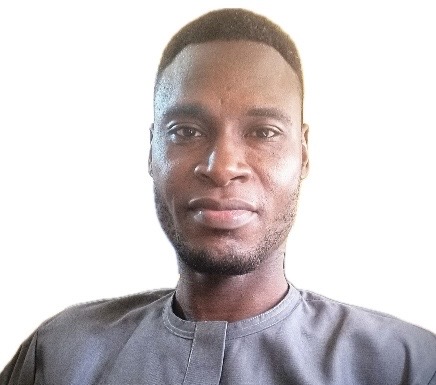A university Don and clinical researcher in the Department of Obstetrics and Gynaecology, Ladoke Akintola University of Technology, Ogbomoso, Dr. Matthew Fijabiyi, has said accurate foetal weight estimation is crucial in ensuring safe deliveries and reducing maternal and neonatal complications.
Fijabiyi who disclosed this while speaking on his latest study, “Accuracy of Clinical and Ultrasound Foetal Weight Estimation in Predicting the Actual Birth Weight at Term at Federal Medical Centre, Keffi, Nasarawa State, Nigeria, sheds light on the accuracy of foetal weight estimation methods and their implications for clinical practice.
Fijabiyi who has dedicated his career to advancing maternal healthcare through rigorous scientific research, said enhancing foetal weight estimation is critical for improved maternal health in the ever-evolving field of obstetrics and gynaecology,
Fijabiyi’s research offers invaluable insights that could shape obstetric management strategies across Nigeria and beyond with the increasing need for precise birth weight estimation to aid in delivery planning and reduce perinatal risks.
He stated that “Foetal weight estimation is a fundamental aspect of obstetric care, influencing decisions related to the mode of delivery, timing of labour induction, and the management of pregnancy complications.
“An overestimation or underestimation of foetal weight can lead to unnecessary caesarean sections, mismanagement of labour, and increased risks for both mother and child”.
He explained that traditionally, foetal weight estimation has been performed using two primary methods: clinical estimation (based on palpation and maternal measurements) and ultrasound estimation (which employs imaging technology to assess foetal size).
However, there has been an ongoing debate over the accuracy of these methods, particularly in diverse populations with unique genetic and socioeconomic factors.
Fijabiyi’s study hereby sought to determine which method offers the most precise prediction of actual birth weight among Nigerian women.
He used 360 pregnant women at term (between 37 weeks + 0 days and 41 weeks + 6 days) who met specific inclusion criteria.
To ensure accuracy, pregnant women with conditions that could significantly affect birth weight estimation such as maternal obesity, multiple pregnancies, foetal anomalies, and polyhydramnios were excluded.
He employed both clinical and ultrasound methods to estimate fetal weight before delivery. These estimations were then compared with the actual birth weight recorded at birth.
The key findings of Fijabiyi’s research revealed significant variations in the accuracy of clinical and ultrasound foetal weight estimations on Birth Weight Trends as the mean actual birth weight in the study was 3.22 ± 0.42 kg.
However, this value was significantly lower than the average birth weight of 3.57 kg recorded in developed countries like the United Kingdom.
He finds out that Ultrasound estimation was found to be more accurate than the clinical method, the mean percentage error and absolute percentage error for the clinical method were higher compared to ultrasound estimation, indicating a greater margin of error when relying solely on clinical assessments, Ultrasound estimations of fetal weight overestimated the actual birth weight but had a lower absolute percentage error whereas clinical estimations underestimated the actual birth weight.
Also, he discovered that 41.5% of clinical estimations fell within 10% of the actual birth weight, while 55.0% of ultrasound estimations were within the same margin of error.
Fijabiyi and his colleagues acknowledged that improvements in ultrasound technology and training in foetal weight estimation techniques may have contributed to the observed variations in accuracy. Secondly, socioeconomic factors, observer bias, and regional disparities could also influence birth weight and fetal weight estimation precision.
His research underscores the importance of ultrasound as a superior method for foetal weight estimation, particularly in cases where accurate prediction is crucial for clinical decision-making.
While clinical methods remain valuable, especially in low-resource settings where ultrasound is not readily available, healthcare providers must recognize their limitations.
Ultrasound should be the preferred method for foetal weight estimation whenever possible. Clinical methods, while useful, should be supplemented with ultrasound to improve accuracy.
He however recommended that training programs for healthcare providers should emphasize improving clinical foetal weight estimation skills while also expanding access to ultrasound technology.
Dr. Fijabiyi’s work is a major contribution to maternal and child health in Nigeria, highlighting the need for improved obstetric practices to reduce birth-related complications.
His findings can help healthcare policymakers and practitioners refine clinical guidelines for foetal weight estimation, potentially leading to better outcomes for pregnant women and newborns.
Given Nigeria’s high maternal and infant mortality rates, integrating more accurate foetal weight estimation techniques into routine obstetric care could significantly improve perinatal management and reduce preventable complications during labour and delivery.
Fijabiyi is a leading figure in obstetrics and gynaecology continues to push the boundaries of maternal healthcare research. His dedication to evidence-based practice is transforming the way foetal weight estimation is approached in Nigeria, ensuring that more mothers and babies receive the care they deserve.
With ongoing advancements in ultrasound technology and maternal health interventions, Dr. Fijabiyi’s contributions will undoubtedly play a vital role in shaping the future of obstetric care among pregnant women in Nigeria. His groundbreaking study provides compelling evidence supporting the superiority of ultrasound over clinical methods for foetal weight estimation.
His research not only highlights critical disparities in birth weight estimation but also calls for a more technology-driven approach to maternal healthcare.
As his work gains recognition, it has the potential to influence national policies on maternal health, ensuring that Nigerian women receive accurate, effective, and life-saving obstetric care. Through research, innovation, and dedication, he is making a lasting impact on maternal and foetal health.
WATCH TOP VIDEOS FROM NIGERIAN TRIBUNE TV
- Let’s Talk About SELF-AWARENESS
- Is Your Confidence Mistaken for Pride? Let’s talk about it
- Is Etiquette About Perfection…Or Just Not Being Rude?
- Top Psychologist Reveal 3 Signs You’re Struggling With Imposter Syndrome
- Do You Pick Up Work-Related Calls at Midnight or Never? Let’s Talk About Boundaries







